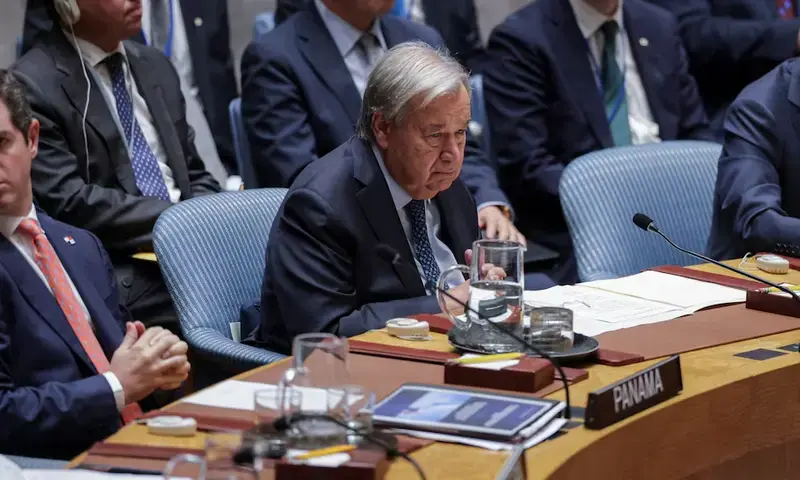China leads climate action with new emission reduction plans amid US criticism
China announced ambitious new climate plans, positioning itself as a leader in global climate action while subtly rebuking US President Donald Trump’s recent anti-climate remarks at the UN General Assembly.
Speaking at a climate leaders’ summit hosted by UN Secretary- General Antonio Guterres, Chinese President Xi Jinping stated that by 2035, China aims to reduce its greenhouse gas emissions by 7% to 10% from peak levels.
Xi also outlined plans to increase China’s wind and solar power capacity by six times compared to 2020 levels over the next decade, aiming to elevate the share of non-fossil in the country’s energy consumption to over 30%.
This marks the first time China, the world’s largest emitter of greenhouse gases, has committed to a reduction in emissions rather than merely limiting their growth, although the target fell short of many expectations.
During his address, Xi called for stronger climate commitments from developed nations, implicitly referencing the US for distancing itself from the Paris Agreement. “Green and low-carbon transformation is the trend of our times”, he asserted urging the international community to maintain its commitment to climate action.
In contrast, President Trump characterised climate change as a “con job” in his UN speech, criticizing scientific consenses and the clean energy initiatives of China and EU member states. He also announced a second withdrawal from the Paris agreement which seeks to limit global temperature increases to 1.5 degree Celsius.
Political analysts noted that Trump’s stance could enable China to dominate the post-carbon energy market. Ian Bremmer from the Belfer Center remarked, “Letting China become the world’s sole powerful electro-state is the opposite of making America great again”.
While observers hoped for a stronger commitment from China possibly reduction target of at least 30% the announcement was viewed as cautious, reflecting Beijing’s tradition of steady decision making amidst a rapidly evolving energy landscape. Director of the China Climate Hub Li Shuo, at the Asia Society suggested that China’s advancements in green technology could lead to a more proactive global role.
Despite the pressure for significant climate commitments ahead of COP30 in Brazil, many environmental groups expressed disappointment with the recent announcements, arguing they fell short of the urgent action needed in light of worsening climate impacts.
Brazilian President Luis Inacio Lula da Silva warned that commitments made before the upcoming UN climate summit would test global belief in scientific consensus.
Guterres acknowledged slow progress in the energy transition, noting that actions under the Paris Agreement have reduced the projected average global temperature rise but emphasised the need for more ambitious plans for 2035.
The European Union is still finalising its new climate targets but aims to meet a 55% reduction in emissions by 2030. Australia announced plans to reduce greenhouse gases by 62% to 70% below 2005 levels by 2035, while Palau, representing small island states, aims for a 44% reduction from 2015 levels by the same year.
Palau’s President Surangel Whipps reminded global leaders of their obligations under international law to take stronger measures against emissions, stating that those with the greatest responsibility must lead the way.
For the latest news, follow us on Twitter @Aaj_Urdu. We are also on Facebook, Instagram and YouTube.

























Comments are closed on this story.